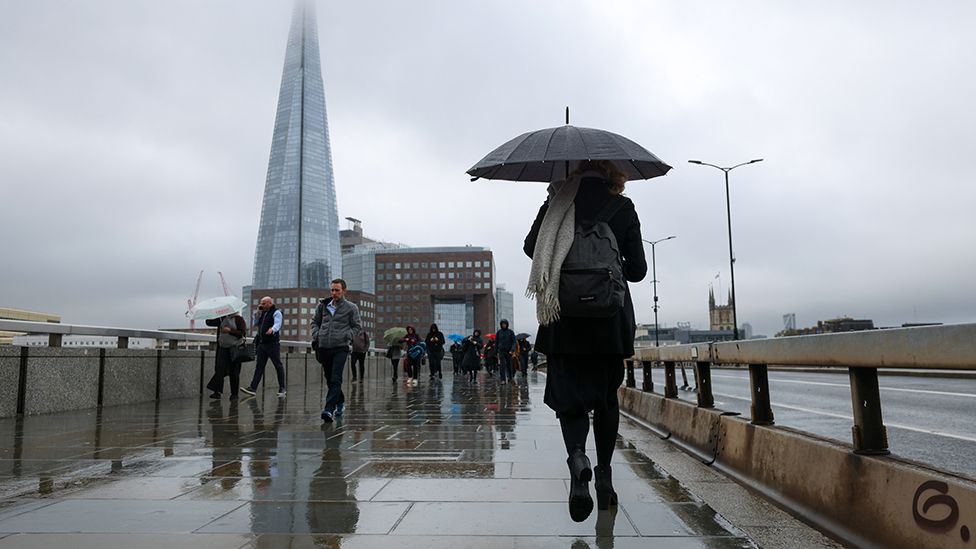-

-
-
Loading

Loading

Official figures have revealed that the UK entered a recession in the final three months of last year, with the economy shrinking by more than anticipated. Gross domestic product (GDP), a crucial indicator of economic activity, dropped by 0.3% between October and December following a fall in the previous quarter. The UK falls into a recession if GDP declines for two successive three-month periods. Prime Minister Rishi Sunak's pledge to grow the economy has been dealt a blow by this news. Chancellor Jeremy Hunt is due to announce the latest Budget in less than three weeks, while Shadow Chancellor Rachel Reeves commented that the data demonstrates that Sunak's vow to boost the economy is now in ruins. Governments typically use increasing GDP as evidence of their effective economic management, whereas opposition politicians argue that declining GDP indicates poor governance. Steady growth in GDP leads to higher tax revenue, providing governments with more funds to invest in public services such as schools and hospitals. Governments also monitor their borrowing in relation to the size of the economy. Treasury sources have confirmed that the chancellor is considering greater cuts in public spending to facilitate tax reductions in the upcoming Budget. Forecasts for the UK's public finances have worsened recently due to increased interest costs on government borrowing. Hunt stated that low growth is not surprising given high interest rates to counter inflation but added that the British economy is showing signs of improvement. However, Reeves described the recession as Sunak's responsibility, causing concern for families and businesses across the country. The Office for National Statistics reported that all major sectors of the economy, including construction and manufacturing, experienced a slowdown in the final quarter of 2022. The 0.3% decline surpassed the 0.1% fall expected by financial markets and economists. Ruth Gregory, deputy chief UK economist at Capital Economics, suggested that the latest figures might prompt the Bank of England to consider reducing interest rates, although she believed that the central bank would not be overly troubled by what is expected to be a mild and short-lived recession. In January, inflation remained at 4%, prompting the Bank of England to maintain interest rates at 5.25%, as it had since August of the previous year. The economy grew by 0.1% for the entire year, with Liz McKeown, director of economic statistics at the ONS, noting that while it had contracted for two consecutive quarters, it remained broadly flat over 2022 as a whole. However, excluding the effects of the pandemic, last year's annual growth was the weakest since 2009, when the UK and major economies were reeling from the global financial crisis.